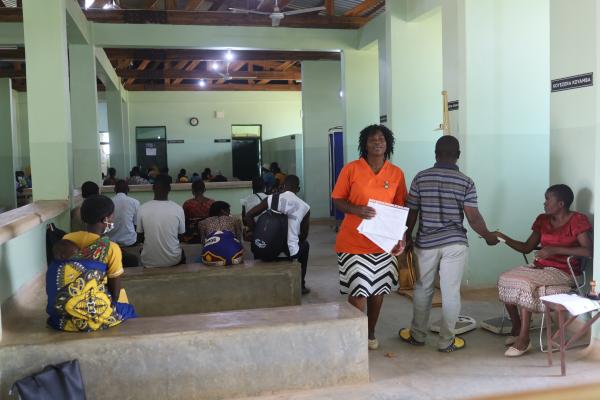According to WHO’s Global Non-Communicable Diseases (NCDs) Compact 2020-2030, 28 people die prematurely from NCDs, such as cancer, diabetes, heart diseases or lung diseases every minute. NCDs affect around two billion people across the globe and cause three quarters of all deaths globally.
These NCDs have a significant impact on approximately two billion people worldwide and account for three-quarters of all global deaths. What is even more concerning is that many of these NCDs are highly preventable.
Taking this into consideration, Partners In Health (PIH) Malawi in partnership with the Ministry of Health (MoH) has successfully established the Integrated Chronic Care Clinic (IC3) at Neno District Hospital. The clinic aims at providing comprehensive screening and treatment services for people with NCDs among other diseases. This helps in prevention of complications and help clients through treatment so that they can do their daily activities and improve their lives.
The clinic consists of five components which includes IC3 Proper, Palliative Care, Mental Health, Advanced NCD (PEN-plus) and Pediatric Development Clinic (PDC). The IC3 clinic supports needy clients. Depending on the level of need, clients are given a monthly package which results in compliance with medication and other services.
In Neno district, the most common NCDs include hypertension, asthma, mental illness, epilepsy, and diabetes, among others. Currently, the clinic is catering to approximately 6,000 NCD clients.
Gift Nsajama, PIH’s Clinical Officer, who works at Neno District Hospital, said that while NCDs may be incurable, individuals who receive proper treatment and adhere to medication and other non-pharmacological interventions can live productive and healthy lives just like anyone else.
Although the number of clients with NCDs appears to be disproportionately high compared to the small population of Neno, this is because of the proactive screening measures implemented to identify NCDs at an early stage before they become complicated. Additionally, the clinic has been attracting people from other districts, such as Blantyre, Balaka, Ntcheu, Mwanza and Mozambique.
It has been 9 years since the Ic3 clinic was established, and it continues to be a reliable and trusted presence in the APZU service delivery system. Over the years, the clinic has consistently provided top-quality healthcare services, catering to the diverse needs of its patients. As a result, the Ic3 clinic has built a strong reputation for its commitment to excellence, professionalism, and compassionate care.


